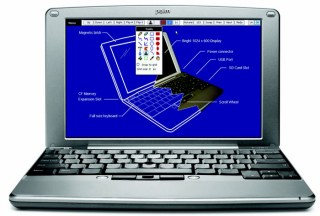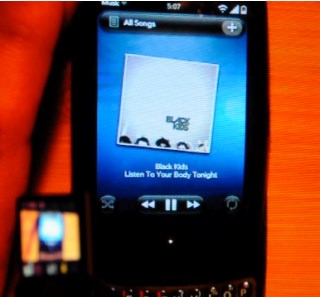TealPoint & Normsoft on webOS: It's Great, But We Want C (original) (raw)
 The biggest potential sticking point for developers on Palm's new webOS is the lack of a "low-level" SDK. While the HTML/CSS/Javascript-based Mojo SDK should prove to be a boon for the development and porting of web-integrated applications, it's becoming increasingly apparent that Palm will also eventually need to offer a more "down-to-the-metal" approach to webOS development, such as C, which is essential for intensive applications like movie players or 3D games. Palm Infocenter has spoken with two long-time PalmOS developers, TealPoint and Normsoft, in order to probe the issue a little deeper. Hit the jump for their thoughts.
The biggest potential sticking point for developers on Palm's new webOS is the lack of a "low-level" SDK. While the HTML/CSS/Javascript-based Mojo SDK should prove to be a boon for the development and porting of web-integrated applications, it's becoming increasingly apparent that Palm will also eventually need to offer a more "down-to-the-metal" approach to webOS development, such as C, which is essential for intensive applications like movie players or 3D games. Palm Infocenter has spoken with two long-time PalmOS developers, TealPoint and Normsoft, in order to probe the issue a little deeper. Hit the jump for their thoughts.
TealPoint
TealPoint, in addition to being an original Palm OS favourite, were also one of Palm's third-party partners on the ill-fated Foleo. The company had nearly five apps ready to go for the Foleo at launch. TealPoint president Vince Lee offered the following answers to our emailed questions:
 Palm Infocenter: What's Tealpoint's general opinion of Palm's new technolgies - the webOS and the Pre smartphone?
Palm Infocenter: What's Tealpoint's general opinion of Palm's new technolgies - the webOS and the Pre smartphone?
Vince Lee: I am actually very excited about the WebOS platform, mostly because it puts Palm back into the game.
PIC: Have you had a chance to work with the Mojo SDK at all?
VL: Even though we are a premier developer and I myself was brought in early on other Palm products (like the Foleo), the Palm Pre and WebOS was as much of a surprise to us as anybody else. We, unfortunately have no experience with the new SDK or any information that Palm has not stated publically.
PIC: While webOS is Linux-based, Palm has stated that applications for the device will be created with commonly-used web technologies, like HTML/CSS/Javascript. Do you think this approach will be in any way restrictive for developers such as yourself? Or is it the other way around - by using such well-known languages, it will actually make the development process easier?
VL: Regarding the HTML/CSS/Javascript basis for WebOS development, this is not particularly appealing to us as we do not program extensively in those technologies. Furthermore, TealPoint has an extensive body of existing code previously written in 'c' for the PalmOS, Windows Mobile, and Foleo platforms, and it would be a great loss to have to abandon all this to rewrite code from scratch.
We are optimistic, however, that Palm will eventually offer some sort of native SDK for WebOS, as it is impossible to write low-level movie players, 3D games, and similar cpu-intensive applications without one. Since many former members of the Foleo development team undoubtedly worked on WebOS, we're hoping that they release a WebOS SDK that resembles the Foleo SDK which which we're very familiar.
As a final note, it seems likely now that the release of the Palm Pre will cause us to make a major course change in our company direction. With the recent decline of the PalmOS software market, we had recently been ramping up an iPhone development effort. However, we've been frustrated with Apple's Mac-only development environment, non-standard language (obj-c), and Orwellian product restrictions that allow it to block any product at any time for any reason, potentially wasting months of our development expense at their whim. Because of these reasons, if we can get hold of the WebOS SDK soon, we'll likely drop the iPhone in favour of it.
Normsoft
Everyone knows Normsoft: their excellent, multiple-format-supporting Pocket Tunes music player has been bundled on all the recent Palm OS smartphones. Like TealPoint, they were also partners with Palm on the Foleo. Tim Norman gave the following responses to our emailed questions:
Palm Infocenter: What's Normsoft's general opinion of Palm's new technologies - the webOS and the Pre smartphone?
Tim Norman: Palm really seems to have nailed the hardware and user interface on the Pre. It looks like a spectacular device. We were doubtful they could bring out a phone that could compete with the iPhone but it looks like they've done it.
 PIC: While webOS is Linux-based, Palm has stated that applications for the device will be created with commonly-used web technologies, like HTML/CSS/Javascript. Do you think this approach will be in any way restrictive for developers such as yourself? Or is it the other way around - by using such well-known languages, it will actually make the development process easier?
PIC: While webOS is Linux-based, Palm has stated that applications for the device will be created with commonly-used web technologies, like HTML/CSS/Javascript. Do you think this approach will be in any way restrictive for developers such as yourself? Or is it the other way around - by using such well-known languages, it will actually make the development process easier?
TN: Our applications have always relied on the ability to run native code on the device. For example, adding WMA support (like we do with Pocket Tunes on the Palm and iPhone) is simply not something you can do in a scripting language like Javascript or Java. So Palm's decision to go with HTML/CSS/Javascript will certainly restrict the number of things that can be done on the phone. That said, most developers don't need that level of access. If Palm is being truthful that all their apps are written using their own SDK, then it seems to be a capable environment.
Stay tuned to Palm Infocenter for more developer opinions as we receive them.